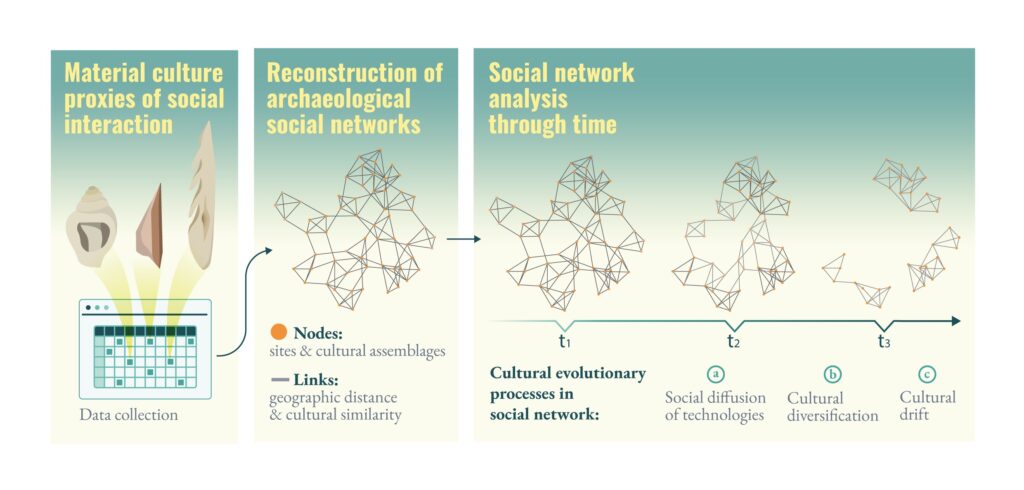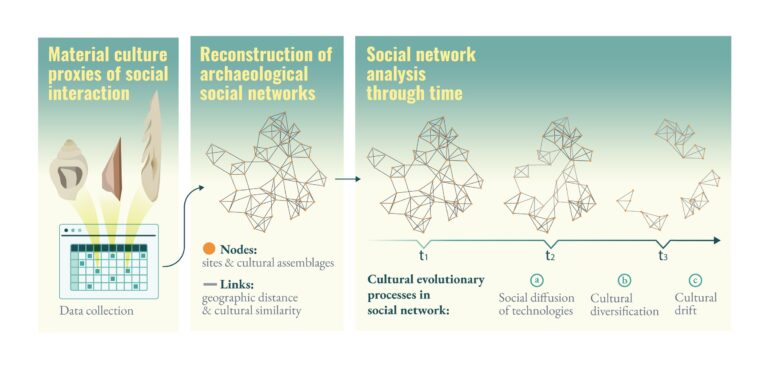Study explains cultural evolution in hunter-gatherer populations through social networks
Social networks have been crucial in understanding cultural evolution in hunter-gatherer populations. This is one of the main conclusions of a new study published today in the journal Trends in Ecology and Evolution. Coordinated from the University of Alicante, the project includes researchers from the French National Centre for Scientific Research (CNRS) and the universities of Barcelona, Cambridge, Zurich, Aarhus, Texas at San Antonio and Arizona State University.

According to the study, social learning processes in hunter-gatherer populations are characterised by the transmission of information between individuals from the same group and from different residential groups. These links lead them to form extensive networks connecting very distant groups. For this reason, the study introduces the concept of ‘network thinking’ as a new scientific approach aimed at shedding light on how social structure has influenced cultural evolution in past and present hunter-gatherer societies.
“Over the last few years, a number of ethnographic and archaeological studies, computational simulations and social learning experiments have changed the way we see the role of social connectedness in cultural transmission processes. However, we needed an all-encompassing view, agreed by several specialists, which would lay the foundations for a paradigm shift in cultural evolution studies”, as stated by Javier Fernández López de Pablo, a distinguished researcher at the University of Alicante Institute for Archaeology and Heritage Research (INAPH).
Changes in social connectedness
The article highlights that social network analysis is needed in archaeology for researchers to understand how changes in social connectedness influenced a variety of processes of cultural change. University of Barcelona lecturer Sergi Lozano, another of the authors, points out that
“applying social network analysis to archaeological records can provide a unique long-term perspective to find out how social connectedness influenced processes such as the spread of ideas and technologies, cultural diversification and cultural trends.”
The study, conducted in the framework of the European Research Council-funded Paleodem project.
Bibliographic reference:
Fernández-López de Pablo, J., Romano, V., Derex, M., Gjesfjeld, E., Gravel-Miguel, C., Hamilton, M.J., Riede, F., Lozano, S. 2022. “Understanding hunter–gatherer cultural evolution needs network thinking”, Trends in Ecology and Evolution (2022). DOI: https://doi.org/10.1016/j.tree.2022.04.007
Press release from Asociación RUVID.



